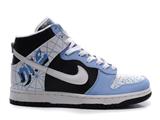The Way of Online Marketing for Foreign Cosmetics:
The ethnic cosmetics market (cosmetics franchise: http://china.globrand.com/join-huazhuang/) has enormous potential, and neither multinational corporations nor local enterprises can afford to ignore it. However, due to the earlier closure of China's forestry chemical industry, by the late 1980s, two global giants in the forestry chemicals sector—Procter & Gamble and Unilever—had already entered the Chinese market. Subsequently, other multinational companies such as Avon and L'Oréal also joined the "land-grabbing" activities. Foreign-funded cosmetics, with their strong financial resources, traditional craftsmanship, and high-level technological expertise, have been expanding their market share year by year and firmly occupying the mid-to-high-end domestic market. According to relevant statistics, the market share held by foreign-funded enterprises has approached 90%, and continues to expand. Meanwhile, local cosmetics brands such as Herborist, Bai Caojie, Nature’s Hall, Jiaxue, Longliqi, Liushen, Dai Fei, and Ting Hsiang-Yi, apart from a few that have managed to enter the mid-range domestic market, are predominantly concentrated in the mid-to-low-end segment.
In 2003, the foreign-funded cosmetics giant L'Oréal successfully acquired the once brilliant local cosmetics brand Xiao Hu Shi. In 2004, it further acquired Yu Xi, the only local brand that had managed to enter the high-end category. In 2008, Johnson & Johnson also acquired Ti Wei, which had once raised the banner of ethnicity. Local cosmetics brands have thus been gradually pushed to the brink.
At the same time, Mr. Liu Dongming, an expert in online marketing at Peking University's Executive Education program, pointed out that in response to the continuously growing international cosmetics market share, the strategic layout of domestic cosmetics has quietly changed. While maintaining their hold on the mid-to-high-end domestic cosmetics market, they are also extending their reach further into the mid-to-low-end market, primarily domestically focused. Faced with foreign cosmetics brands that are far more powerful and aggressively advancing, domestic cosmetics must row against the current; without counteraction, they risk being frozen out or even disappearing. But how can domestic cosmetics effectively counteract these foreign brands, capture more market share, and establish ethnic identity? Let's look at Mr. Liu Dongming's comprehensive approach to domestic cosmetics marketing.
1. **Product Homogenization**
Following trends is not wrong, as it can save on "market cultivation costs." However, continuous following inadvertently creates formidable competitors. Product homogenization leads to direct competition at both the terminal and channel levels, ultimately resulting in price wars. The profit margins at every stage of product stagnation decrease, disrupting the original profit-sharing system, leading the product into a cycle of vicious repetition.
**Solution:** Mr. Liu Dongming from Peking University's Executive Education program suggests that differentiated positioning must be precise. It should reflect the core advantages of one's own products, differentiate itself from competitors, and meet the common needs of target consumers to leverage strengths and capture the blue ocean market. For instance, Jingrun Jade, which recently gained popularity through the TV show *Man Up*, focuses on creating value-centered "experiences" for consumers. By offering discounts, it attracts consumers to understand "Jingrun Jade," then transitions to an "experience-based" model where consumers try the products first, feel the quality of "Jingrun Jade" goods, and further convey the product differentiation characteristics of being "jade-based, natural, and green." This promotes interaction with consumers and drives purchases. Through this consistent promotional strategy from "experience" to "experience-based," "Jingrun Jade" was able to quickly open up sales channels after entering the market.
Simultaneously, the promotional strategy of "Jingrun Jade" is based on fully conveying the brand characteristics, product features, and beauty philosophy to consumers. Combined with excellent product quality, consumers easily perceive the value of "Jingrun Jade" after purchasing and trying it, thereby increasing consumer loyalty and making repeat use and purchase possible. In Hainan and Liaoning, "Jingrun Jade" adopted this promotional model and increased its sales from zero several years ago to over 20 million yuan today. Even in highly competitive markets like Shenzhen, "Jingrun Jade" managed to break through 10 million yuan in sales within three years, becoming one of the most popular ethnic cosmetic brands in the city.
2. **Imitative Tactics**
Price wars, promotional battles, poster campaigns, and human sea tactics eventually lead to high costs without significant returns. Any tactical move must follow a strategy, considering the strengths and weaknesses of the product and highlighting its value. Continuous imitation results in self-harm.
**Solution:** Traditional brand building undoubtedly requires large-scale financial input from companies, with celebrity endorsements for television and magazine advertisements being quite costly. Compared to well-funded foreign cosmetics, most domestic cosmetics lack sufficient funds, making direct confrontation clearly unwise. How to find a cost-effective and precise marketing method is the primary issue we need to consider.
Continuous explanation source:
(Compiler: Procurement Editor)



